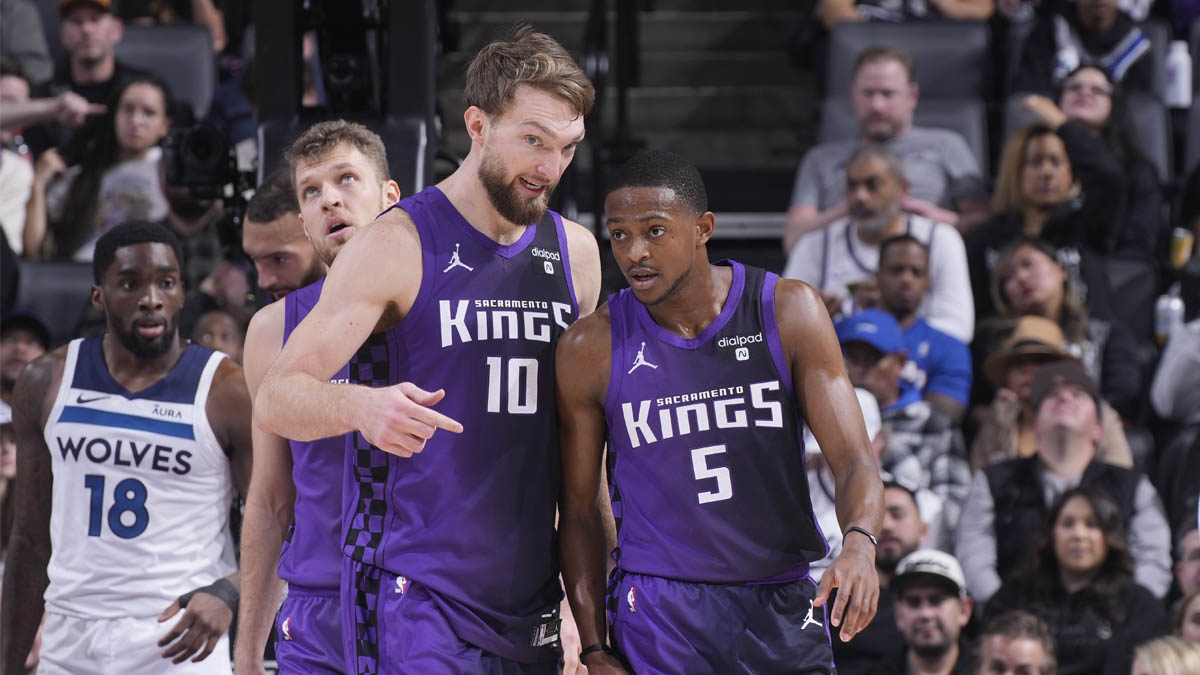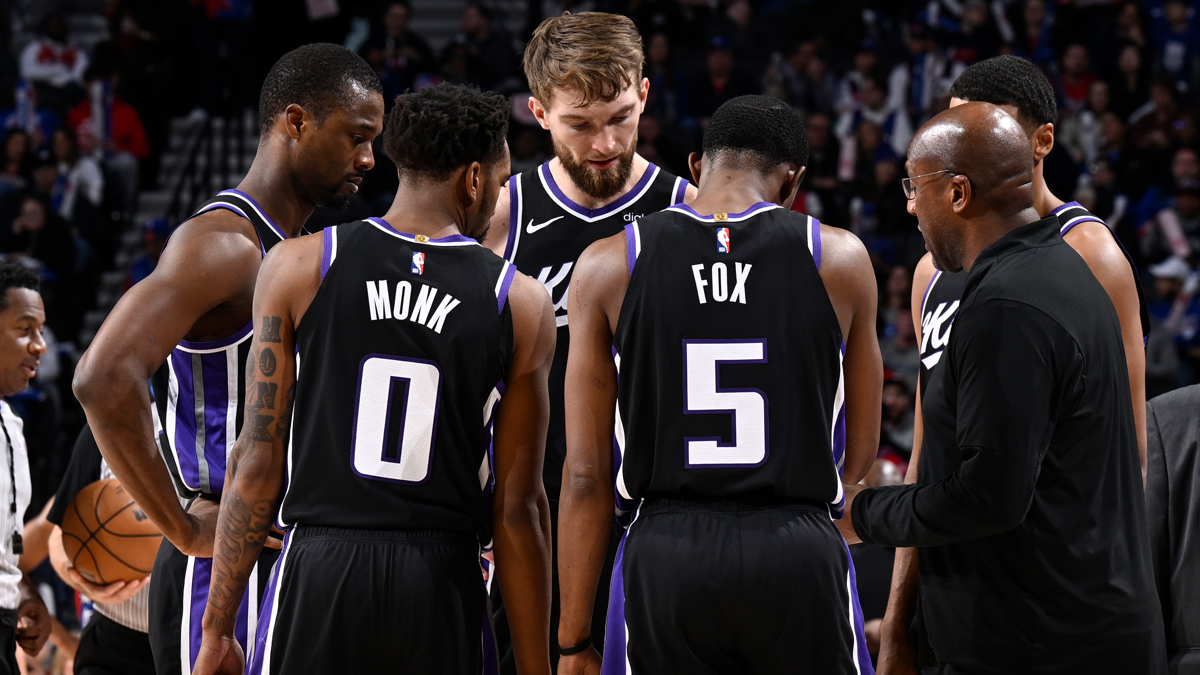
Patience is a virtue. The Sacramento Kings waited in free agency and landed a very nice piece late when Yogi Ferrell walked away from the Dallas Mavericks. Entering his third NBA season, Sacramento found another young rotational player to add to the mix and improved their depth in the backcourt.
Ferrell inked a budget friendly, two-year, $6.2 million contract with the Kings. The second season is non-guaranteed, giving the team the option to test drive of the undrafted point guard before deciding whether to make his stay more permanent.
Sacramento added a versatile player that will steal minutes at both guard positions. He has a scorer's mentality that plays perfectly into the new uptempo style the Kings hope to transition to this season.
Stay in the game with the latest updates on your beloved Bay Area and California sports teams! Sign up here for our All Access Daily newsletter.
Strengths
Speed, quickness and a knack for scoring makes Ferrell one of the most important acquisitions the Kings made this offseason. With their want to push the tempo, this is a perfect compliment off the bench to what Fox brings to the first unit.
His offensive numbers don’t jump off the page, but Ferrell has proven adaptable as a major scoring option both as a starter and off the bench. He understands his role and he’s fought his way into the league by playing above and beyond what is expected. Ferrell is also on a short-term deal and has plenty of reasons to post another quality season.
Ferrell can score at all three levels, although he has yet to figured out how to draw fouls in the NBA like he did at Indiana University, where he posted nearly 4.7 attempts per game. At 25 years old and with just two years of experience in the league, there is still room for Ferrell to grow and having a mentor like newly added assistant Bobby Jackson can help in his development.
NBA
On the defensive end, Ferrell improved greatly in his second season in the league. According to NBA.com’s advance stats, Ferrell posted an offensive rating of 104.2 and a defensive rating of 103.8. He’s in the top third of the league in defensive rating, although those stats can be misleading. The Kings didn’t add a stopper at the point guard position, but there is hope that he can hold his own while playing substantial rotational minutes.
Weaknesses
While Ferrell seems to play larger than his listed 6-foot, he’s still undersized, especially when he’s asked to man the shooting guard position. He has quickness to break down his opponents, but mainly to score for himself, instead of setting up teammates.
In his second season in the league, his assist numbers dipped to 3.0 per game with an assist percentage of just 13.5. He posted a low usage rate of just 17 percent last season and played off the ball a lot, which helps explain some of the drop. The Kings need him to push his assist totals back towards the 5.2 dimes per 36 minutes that he averaged during his rookie season.
It’s unlikely that Ferrell develops into anything more than an average defender at the NBA level due to his lack of size and length. He can still make an impact on this end of the court with his speed and quickness, especially if he picks up the opposition at half court and slows their ability to get into offensive sets.
Path to Improvement
Let it fly. Last season, the Sacramento Kings finished third in the league in 3-point percentage, knocking down 37.5 percent from behind the arc. The issue wasn’t hitting the 3-ball, it was that they didn’t take nearly enough, posting just 24 attempts per game (28th in the league).
Buddy Hield led the Kings with 406 attempts from long range. Bogdan Bogdanovic was second with 329 shots from deep. Garrett Temple, now a member of the Memphis Grizzlies, ranked third with 227 3-pointers taken.
Of his 731 shot attempts last season with the Dallas Mavericks, Ferrell hoisted up a shocking 359 3-pointers, hitting 37.3 percent from distance. Sacramento needs him to bring the same mentality to the court that he brought to the Mavs.
Ferrell has plenty of hot spots on the floor, including success from the top of the key and the right elbow. When we isolate his shots from behind the arc, it highlights a way in which he can instantly help improve the Kings’ offense.
Of Ferrell’s 134 made triples, 100 came off of assists. He’s a player that thrives as a lead guard, but he is also an asset off the ball, especially from the corner where he shot over 50 percent on the season. Sacramento needs Ferrell to come in and shoot the ball. While he might not see 28 minutes a game like he did last season win Dallas, he can fill a role as a no-conscience reserve at both guard positions.
Projection
Fox will get the bulk of the minutes at the point, but Ferrell will see plenty of time on the court as well. He’s versatile enough to play alongside Fox for stretches if the Kings go small and his perimeter shooting is a much needed asset for Sacramento.
Barring an injury to players around him, it’s unlikely that Ferrell gets the same minutes he did in Dallas, but that might not affect his numbers dramatically. He is a refined scorer that can push the tempo and help the second unit keep the team in games.
Ferrell will open camp as the Kings’ No. 2 point guard and a primary scorer off the bench. He’ll face a challenge from second-year point guard Frank Mason, but his experience and ability to get out in the open court gives him an advantage. While he is likely to see closer to 20-22 minutes per game this season in Sacramento, Ferrell should still average in low double figures in scoring and add in three-plus assists per game.




